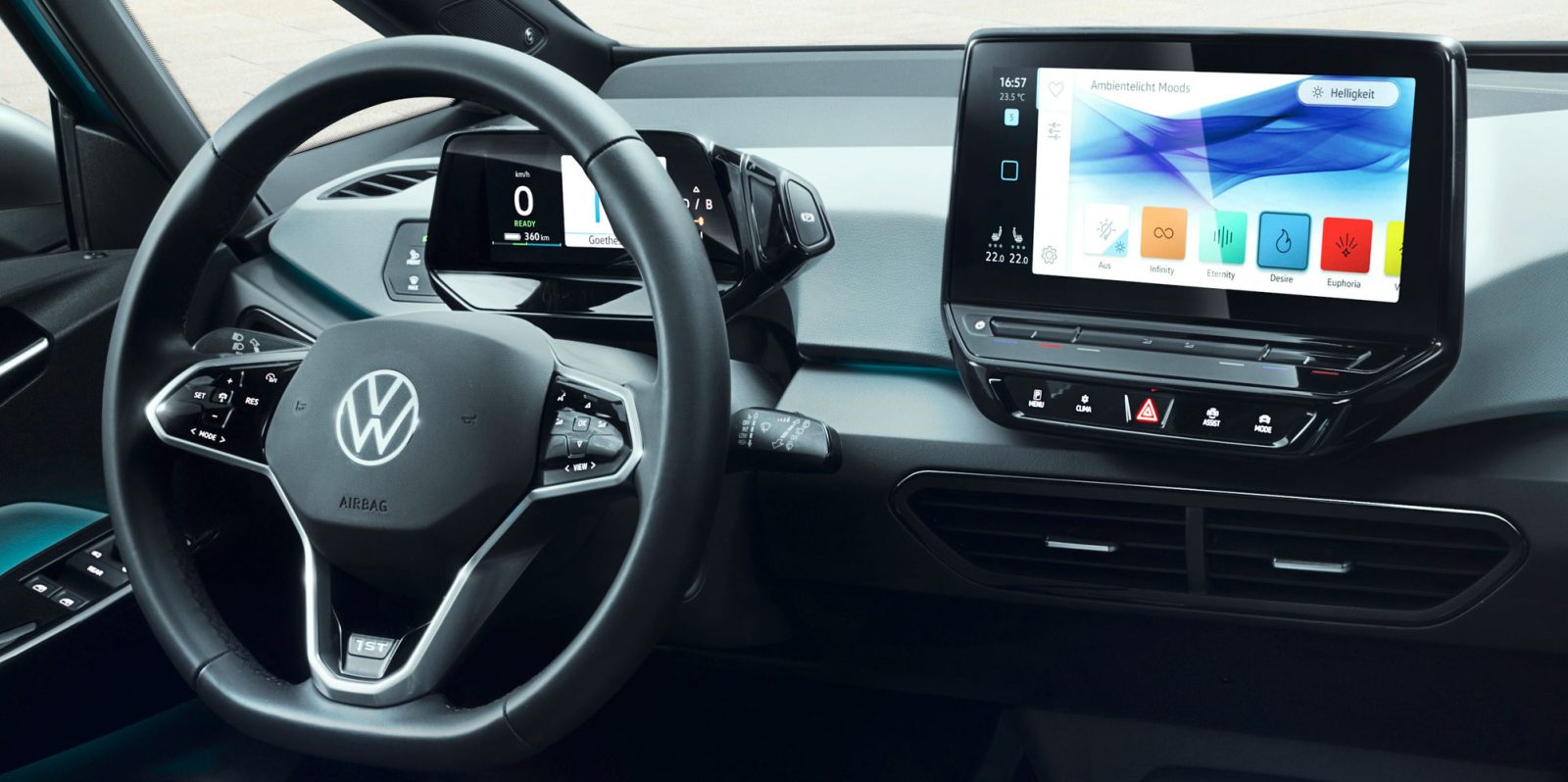Do Golf Carts Have VIN Numbers? The Truth Revealed
Yes, golf carts have Vin numbers. A VIN number is a unique 17-digit identification number that is assigned to every vehicle, including golf carts.
Golf carts have become increasingly popular over the years, not just on golf courses but also in retirement communities, airports, and even on college campuses. They provide an efficient and environmentally friendly way to get around. However, just like any other vehicle, golf carts have identification numbers to keep track of their ownership and history.
These numbers are called vin numbers. In the united states, VIN numbers are required by law, and golf carts are no exception. All golf carts manufactured after 1981 are required to have a 17-digit vin number that is unique to that specific vehicle. This number is used to identify the golf cart and provide information on its history and ownership.

Credit: electrek.co
Understanding Vin Numbers
Golf carts may not be as popular as cars, but they do have something in common: VIN numbers. Yes, you read that right. Golf carts also come with unique identifiers similar to that of automobiles. In this post, we’ll dive deeper into understanding vin numbers, their structure, and how they are unique to each vehicle.
What Is A Vin Number?
Vin stands for a vehicle identification number. It is a unique code assigned to every vehicle to identify and distinguish one from another. Vins are composed of 17 alphanumeric characters that represent specific information about the vehicle such as its manufacturer, make, model, year, and more.
How Is It Structured?
The 17 characters in a VIN are not just random numbers and letters. They follow a specific structure that helps decode the information hidden within the code. Here is an example of how a vin is structured:
- The first three characters represent the world manufacturer identifier (wmi)
- Characters four to nine represent the vehicle description section (vds)
- The tenth character represents the model year identifier (myi)
- The eleventh character indicates the manufacturing plant
- Characters twelve to seventeen represent the vehicle identifier section (vis)
How Is It Unique To Each Vehicle?
Each vehicle has a unique vin that distinguishes it from all other vehicles. No two vehicles can have the same vin. This is because certain characters in the vin represent specific information about the vehicle such as its manufacturer, model, and year of production.
Therefore, even if two vehicles appear similar, their vins will still differ from each other.
Examples Of Vin Numbers For Various Types Of Vehicles.
- A 2015 nissan altima sedan could have a VIN number of 1n4al3ap9fc221875.
- A 2020 ford f-150 pickup truck could have a VIN number of 1ftex1c58lkf95650.
- A 2018 Yamaha golf cart could have a VIN number of jw9-300101.
Understanding Vin numbers can help you determine specific information about a vehicle. It is important to have this knowledge, especially when buying or maintaining a vehicle. With this information, you can decode a vehicle’s history and ensure that you are making an informed decision.
The Role Of Vin Numbers In Golf Carts
Golf carts, once used solely by golfers, have become a common sight on roads, college campuses, and other properties. Many golf carts are equipped with a vehicle identification number (vin), the unique 17-digit code used to identify automobiles. In this blog post, we’ll take a closer look at the role of VIN numbers in golf carts.
Explanation Of How Golf Carts Are Defined As Vehicles By Law
Golf carts are classified as vehicles by law, with regulations varying depending on the state. In general, golf carts are defined as vehicles with three or four wheels that are designed for operations at low speeds. They typically can’t exceed 25 or 35 mph, depending on the state.
Since they are considered vehicles, they must follow traffic laws like traditional automobiles, including rules about registration and insurance.
Why Golf Carts May Require A Vin Number
Many states require golf carts to be registered if they are driven on public roads. In such cases, a Vin number is almost always required for registration. On the other hand, some states don’t mandate registration or VIN numbers for golf carts.
How Golf Carts Are Registered And Licensed As Vehicles
Golf cart owners typically register and license their vehicles at the local Department of motor vehicles (DMV). In most cases, the DMV will require the following:
- Proof of ownership (like a bill of sale)
- The golf cart’s vin number
- Proof of insurance
- Payment for registration and licensing fees
Importance Of Vin Numbers For Golf Carts
Vins are crucial for identifying golf carts and their ownership and play a key role when a golf cart is involved in an accident or stolen. Vin numbers are unique to a particular cart and can’t be duplicated. Additionally, they help law enforcement identify a golf cart’s registered owner if they need to locate them for any reason.
Vin numbers are an important requirement for golf carts that are driven on public roads. Whether your state mandates it or not, having a unique vin number for your golf cart is crucial for personal identification and protection in case of accidents and theft.
Do All Golf Carts Have Vin Numbers?
Factors That Determine Whether A Golf Cart Requires A Vin Number
A vehicle identification number, or vin, is a unique 17-digit code that identifies a specific vehicle. The code includes details such as the manufacturer, model, year, and production number. Whether or not a golf cart requires a VIN number depends on several factors, including:
- The type of golf cart: Golf carts can be classified as low-speed vehicles (lsvs) or not. Lsvs have a maximum speed of 25 mph and can be driven on public roads with a speed limit of up to 35 mph. Golf carts that do not meet lsv standards are only allowed on private property, such as golf courses or resorts.
- The state or province: Regulations for golf carts vary from state to state and from province to province. Some states require all golf carts to have a VIN number, while others only require lsvs to have one. If you’re unsure whether your golf cart needs a vin, check with your local Department of motor vehicles.
- The year of manufacture: Most golf carts manufactured after 1981 have a VIN number. However, some older models, particularly those made before the 1960s, may not have one.
Examples Of Golf Carts That Require Vin Numbers And Those That Do Not
In general, golf carts that are classified as lsvs and those that are manufactured after 1981 require vin numbers. However, regulations can vary depending on the state or province. Here are some examples of golf carts that require vin numbers:
- A 2020 e-z-go s4 high-output electric golf cart that is classified as an lsv and will be driven on public roads in Florida.
- A 2010 Yamaha drive gas-powered golf cart that is also classified as an lsv and will be driven on public roads in California.
On the other hand, here are some examples of golf carts that do not require VIN numbers:
- A 1985 club car electric golf cart that will only be driven on a private golf course in Pennsylvania.
- A non-lsv 2015 club car precedent gas-powered golf cart that will only be used on a private resort in Georgia.
How To Determine If A Golf Cart Has A Vin Number
If you want to find out whether your golf cart has a VIN number, there are a few ways to check:
- Check the frame: Look for a metal plate on the frame of the golf cart. The plate should have 17 characters and include numbers and letters.
- Check the dashboard: Some golf carts have vin numbers stamped or etched onto the dashboard.
- Check the paperwork: If you have the original paperwork for the golf cart, the vin number should be listed there.
If you’re still unsure whether your golf cart requires a VIN number, it’s always best to check with your local DMV office. They can provide you with specific information about your state or province’s regulations.
How do you read a golf cart VIN?
Reading a golf cart’s Vehicle Identification Number (VIN) involves understanding its structure and decoding the information it contains. Here’s how to read a golf cart VIN:
Locate the VIN: The VIN is usually located on the frame or the passenger side dash area of the golf cart.
Understand the Structure: A golf cart VIN typically consists of 17 characters, a combination of letters and numbers.
Decode the Information: The VIN provides details about the golf cart, including the manufacturer, model, model year, production plant, and unique serial number.
Manufacturer Identifier: The first three characters represent the manufacturer’s code.
Vehicle Descriptor Section: Characters 4 to 9 describe the golf cart’s features, such as model, body style, and engine type.
Check Digit: Character 10 serves as a mathematical verification of the VIN’s authenticity.
Model Year: Character 11 indicates the model year.
Assembly Plant: Character 12 shows the manufacturing plant.
Serial Number: Characters 13 to 17 represent the unique serial number of the golf cart.
Understanding the VIN helps with registration, identification, and potential issues with recalls or warranties. It is essential to locate and interpret the VIN accurately for proper documentation and compliance.
What Happens If My Golf Cart Does Not Have A Vin Number?
Are you a golf cart owner wondering whether your vehicle has a VIN number? Perhaps you have recently purchased a cart and aren’t sure whether it is compliant with the law. It’s a common question and one that can cause confusion.
In this section, we’re going to explore the topic of vin numbers on golf carts, with a particular focus on what happens if your vehicle does not have one.
Consequences Of Operating A Golf Cart Without A Vin Number.
If your golf cart does not have a Vin number, it’s not technically road-legal. In most states of us, a vehicle identification number is required to register and operate a cart. Specific consequences of operating a golf cart without a VIN number include:
- You may not be able to register it: Without a VIN number, you may find it difficult – if not impossible – to register your golf cart with your state’s dmv (department of motor vehicles).
- You could face fines: Operating an unregistered golf cart can result in fines, impoundment of the vehicle, and even civil lawsuits.
- It may affect your insurance: Many insurance companies will not provide coverage for vehicles that do not have a VIN number.
Can A Vin Number Be Added To A Golf Cart?
The good news is that it is possible to add a vin number to a golf cart. If your vehicle was manufactured before 1981, it may not have come with one as standard, in which case you should be able to install one.
This is a fairly straightforward process, which would involve contacting a dealer or trusted mechanic who specializes in golf carts. They will be able to guide you through the specifics.
Steps To Take If A Golf Cart Does Not Have A Vin Number.
If you have checked your golf cart and cannot find a VIN number, the first step you should take is to contact the manufacturer. They will be able to confirm whether your cart should have come with a VIN number, and if so, why it is missing.
In some instances, it may have been removed for repair and never re-fitted. Alternatively, the vehicle could be stolen, so it is important to rule this out.
If the manufacturer confirms that the cart should have a VIN number, you have two options: you can install a new one (see above), or you can replace the entire vehicle. While this may seem like a drastic measure, continuing to use an unregistered golf cart without a vin number is not recommended, and could lead to legal issues further down the line.
Vin numbers are an important part of registering and operating a golf cart. If your vehicle does not have one, it’s important to get in touch with the manufacturer or a trusted mechanic to ensure compliance with your state’s laws.
It may involve some extra costs, but it’s well worth it for peace of mind and avoiding legal difficulties.
Frequently Asked Questions For Do Golf Carts Have Vin Numbers
Do Golf Carts Have Vin Numbers?
Yes, all golf carts have a vin number that identifies them.
Where Is The Vin Number Located On A Golf Cart?
The vin number is usually located on the frame near the driver’s side rear tire.
How Do I Decode A Golf Cart’S Vin Number?
You can decode a golf cart’s vin number by using an online vin decoder tool or by contacting the manufacturer.
Conclusion
After reviewing the information on whether golf carts have vin numbers, we can conclude that the answer is yes. Although golf carts are not intended for use on public roads, they are still required to have a unique identification number for safety and registration purposes.
Owners of golf carts should ensure that their vehicle has a VIN number, as it is required for proper registration and ownership. Furthermore, having a VIN number provides a way to track and identify stolen golf carts, making it easier for authorities to recover them.
It is important to note that the location of a golf cart’s VIN number may vary based on the manufacturer, so owners should consult their owner’s manual or contact the manufacturer if they are unable to locate it. Overall, it is clear that golf carts are subject to many of the same regulations as other vehicles despite their common use on private property, and the requirement of a VIN number is just one example of this.


